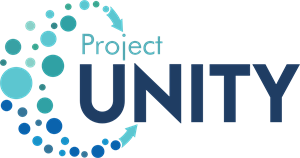
Project Unity: Driving Innovation in Healthcare at Foundation Health Partners
In 2024, Foundation Health Partners (FHP) embarked on its most ambitious modernization effort to date—Project Unity—aimed at revolutionizing healthcare delivery across rural Interior Alaska. Central to this initiative is the deployment of a state-of-the-art electronic health record (EHR) system powered by Oracle Health, coupled with an advanced revenue cycle management platform, Oracle Health Patient Accounting. Scheduled for completion in June 2026, Project Unity leverages emerging technologies to transform clinical workflows and patient outcomes.
Innovation Highlights
Integration of Artificial Intelligence (AI) in Diagnostics and Decision Support
Project Unity incorporates AI-driven tools directly into the EHR to augment clinical decision-making:
- Pattern Recognition & Early Detection: AI algorithms analyze vast amounts of patient data—including medical histories, lab results, imaging, and clinical notes—to identify subtle patterns that may elude human observation. This facilitates earlier diagnosis of complex conditions such as chronic diseases, cancers, and rare disorders.
- Clinical Decision Support Systems (CDSS): These systems provide real-time, evidence-based recommendations for treatment options and medication management, helping clinicians optimize patient care while minimizing errors related to drug interactions or contraindications.
Predictive Analytics for Proactive Care Management
Harnessing machine learning models, the new EHR system predicts which patients are at elevated risk of adverse events such as hospital readmissions, disease exacerbations, or complications. By flagging these patients early, clinicians can:
- Implement proactive and tailored care plans and interventions to prevent healthcare issues from escalating.
- Allocate resources efficiently to those who need it most, reducing costly emergency visits and hospital stays.
- Improve population health management across FHP’s rural communities to not only identify high-risk individuals but also track health trends and measure the effectiveness of interventions
Workflow Automation and Clinician Efficiency
Administrative Burden is a well-known barrier to quality care. Project Unity introduces automation features to streamline documentation, order entry, and coding:- Natural Language Processing (NLP): Converts clinician-patient conversations and notes into structured, searchable data with minimal manual input.
- Smart Templates and Auto-Population: Reduce repetitive data entry, speeding up charting while maintaining accuracy and compliance.
- Integrated Revenue Cycle Systems: Seamlessly connect clinical documentation with billing and accounting functions, enhancing financial operations and reducing errors or delays in claims processing.
Enhanced Data Interoperability and Patient Engagement
The Oracle Health platform supports robust data exchange standards, enabling:
- Secure sharing of patient records with regional providers, specialists, and public health entities to ensure continuity of care.
- Patient portals and mobile apps that empower individuals to actively participate in their health through access to test results, appointment scheduling, and telehealth services which promote self-management and fosters shared decision-making
Impact on Rural Interior Alaska
By embedding advanced AI and predictive technologies within an intuitive EHR framework, Project Unity addresses the unique challenges of delivering high-quality care in remote and underserved areas. The innovation-driven approach promises:
- More accurate, timely diagnoses despite limited local specialty access.
- Prevention of avoidable complications through proactive interventions.
- Greater clinician satisfaction and retention due to reduced burnout from administrative tasks.
- Stronger community health outcomes by leveraging data-driven insights tailored to the region’s demographic and environmental context.

